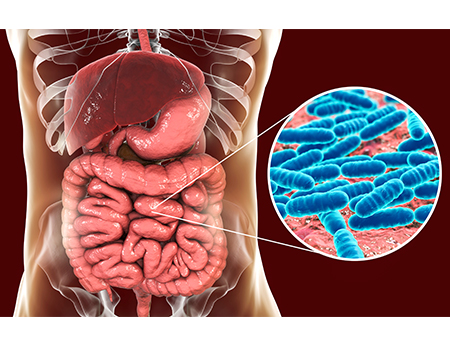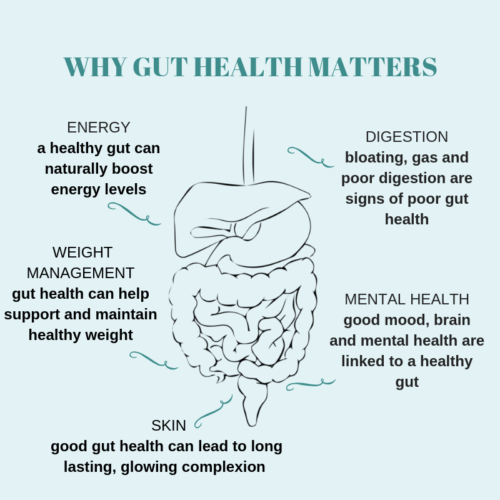Lets discuss the Symptoms of Poor Gut health before we know How To Detox For Gut Health. There are major problems like Digestive Problems, Food Intolerances, Unintended Weight Changes, Chronic Fatigue, and other important symptoms, this all are the type of symptoms for Poor Gut health that we are going to know here.
Symptoms Of Poor Gut Health
The symptoms of poor Gut Health are as follows:

- Digestive Problems: Frequent gas, bloating, diarrhea, or constipation can indicate an imbalance in your gut.
- Food Intolerances: Developing sensitivities to certain foods, such as gluten or dairy, can be a sign of gut issues.
- Unintended Weight Changes: Unexplained weight gain or loss may be related to gut problems.
- Chronic Fatigue: Feeling tired all the time, even after a full night’s sleep, can result from an unhealthy gut.
- Skin Issues: Conditions like acne, eczema, or rosacea may be linked to gut health.
- Autoimmune Conditions: Some autoimmune diseases, like rheumatoid arthritis or lupus, can be aggravated by gut problems.
- Mood Disturbances: Anxiety, depression, or mood swings can be influenced by the gut-brain connection.
- Sleep Problems: Insomnia or irregular sleep patterns might be linked to gut issues.
- Chronic Bad Breath: Halitosis that persists despite good oral hygiene can be a gut-related problem.
- Chronic Yeast Infections: Frequent yeast infections, particularly in women, might be related to gut imbalances.
- Frequent Illness: A weakened immune system and susceptibility to infections can result from poor gut health.
- Chronic Inflammation: Persistent inflammation can contribute to various chronic diseases and may be connected to gut dysfunction.
- Joint Pain: Conditions like arthritis or joint pain can be exacerbated by gut problems.
- Skin Conditions: Conditions like psoriasis or hives may be linked to poor gut health.
- Digestive Disorders: More serious conditions like irritable bowel syndrome (IBS), inflammatory bowel disease (IBD), or celiac disease can result from ongoing gut issues.
These reasons can be seen in peoples body for bad gut health and this should also be taken care to avoid the bad effect on the body health.
How To Detox For Gut Health
Detox is needed for poor gut health and this includes the cleanse of our digestive system. When out gut is healthy it can help in the absorption of the nutrients, proper digestion and many other body functions to work properly. The following ways can be adopted for Detoxing the good health.

- Eat High-Fiber Foods: Fiber-rich foods like fruits, vegetables, whole grains, and legumes promote regular bowel movements and provide nourishment for beneficial gut bacteria.
- Stay Hydrated: Drinking plenty of water is essential for digestion and helps flush out toxins. Aim for at least eight glasses of water a day.
- Probiotics: Consume probiotic-rich foods such as yogurt, kefir, kimchi, sauerkraut, and kombucha. Probiotics support a healthy balance of gut bacteria.
- Prebiotics: Prebiotics are foods that feed your gut bacteria. Incorporate foods like garlic, onions, leeks, asparagus, and bananas into your diet.
- Limit Sugar and Processed Foods: Reducing your intake of added sugars and highly processed foods can help maintain a healthy gut microbiome.
- Whole Foods: Focus on whole, natural foods like lean proteins, fruits, vegetables, and whole grains. These provide essential nutrients and fiber.
- Fasting: Intermittent fasting or time-restricted eating may give your digestive system a break and help it function more efficiently.
- Digestive Enzymes: Consider digestive enzyme supplements to help break down food more effectively. Consult a healthcare professional before using them.
- Stress Management: High stress levels can negatively impact gut health. Practice stress-reduction techniques such as meditation, yoga, or deep breathing exercises.
- Stay Active: Regular physical activity can promote healthy digestion and keep the gut functioning optimally.
- Limit Antibiotics: Use antibiotics only when necessary and as prescribed by a healthcare professional. Antibiotics can disrupt the gut microbiome.
- Hydrate with Herbal Teas: Certain herbal teas like ginger, peppermint, and chamomile can soothe the digestive system and improve gut health.
- Chew Food Thoroughly: Properly chewing your food aids in digestion by breaking it down into smaller, more manageable pieces.
- Avoid Overeating: Eating in moderation prevents overloading the digestive system and helps maintain gut health.
- Consult a Professional: If you have persistent gut issues or specific concerns, it’s advisable to consult a healthcare provider or a registered dietitian for personalized advice.
The detoxing of gut health is never about the hard & strict diet. It is always about the viable changes to our lifestyle and the selection of our daily diet for the natural detoxification process of our body which helps us to make our gut healthy so our body can function well and we remain healthy. Hope you got your answer for How To Detox For Gut Health and hope you remain healthy. Also take suggestion from Gastroenterologist for better treatment.


2 thoughts on “How To Detox For Gut Health? Symptoms, Cure”